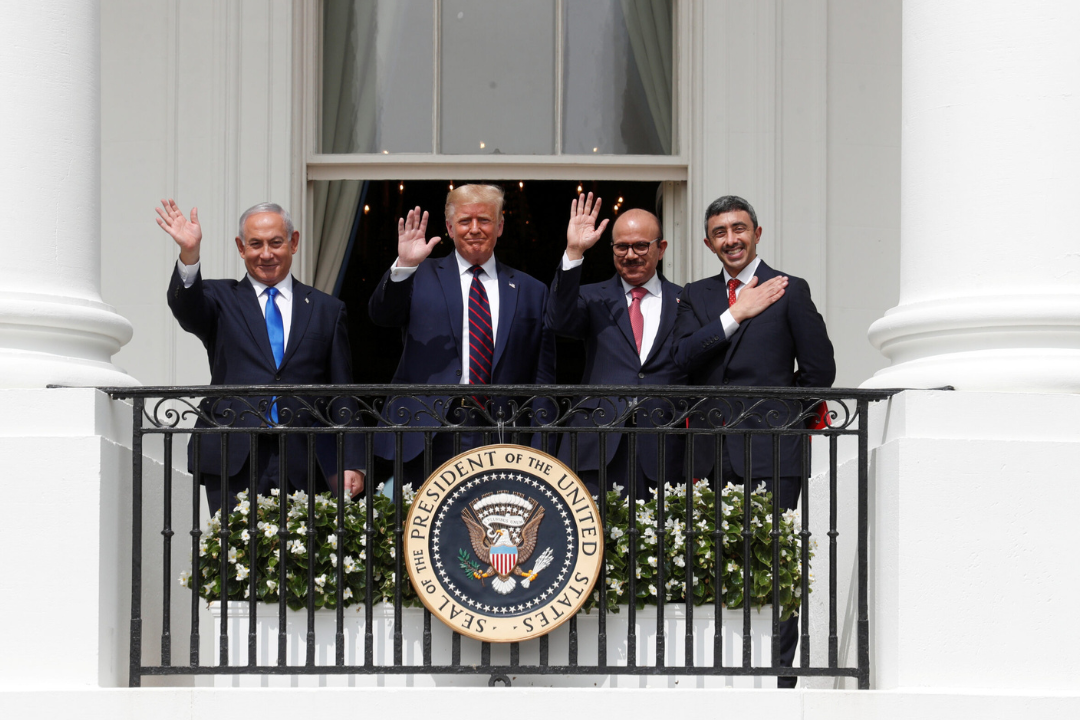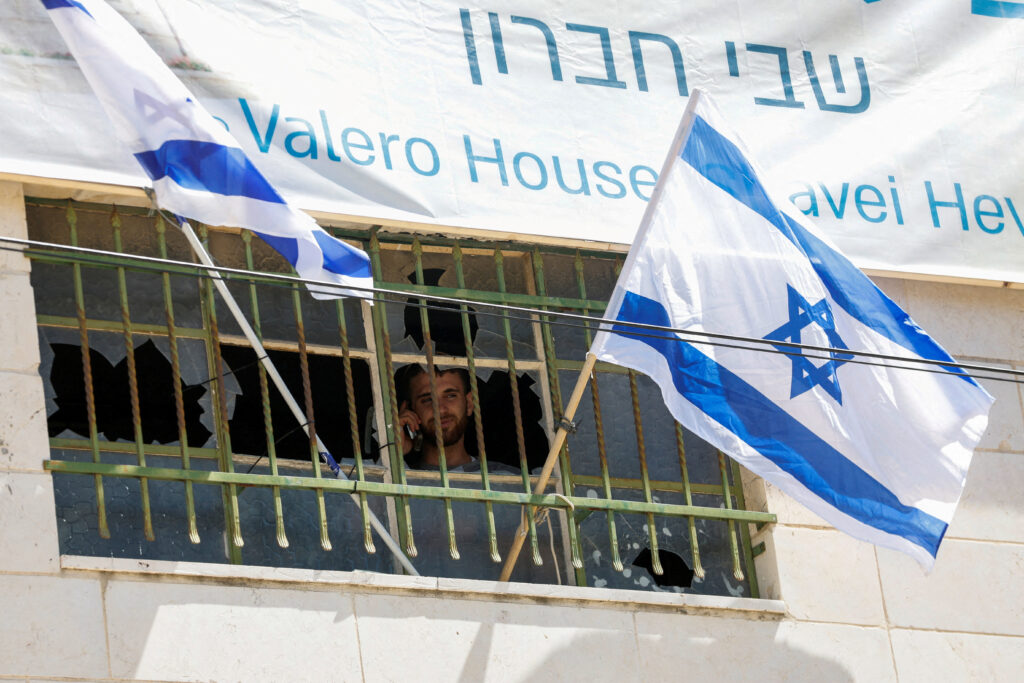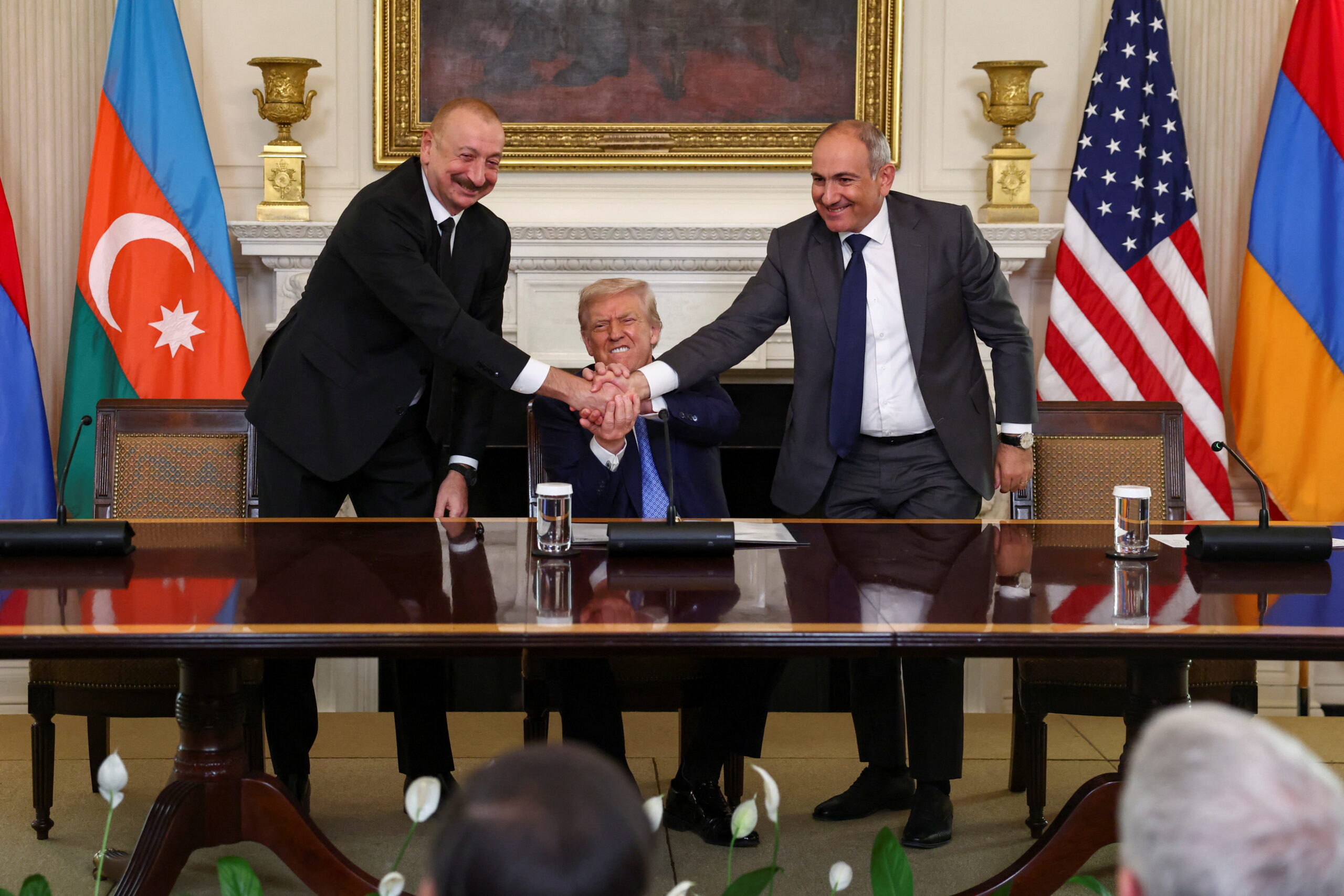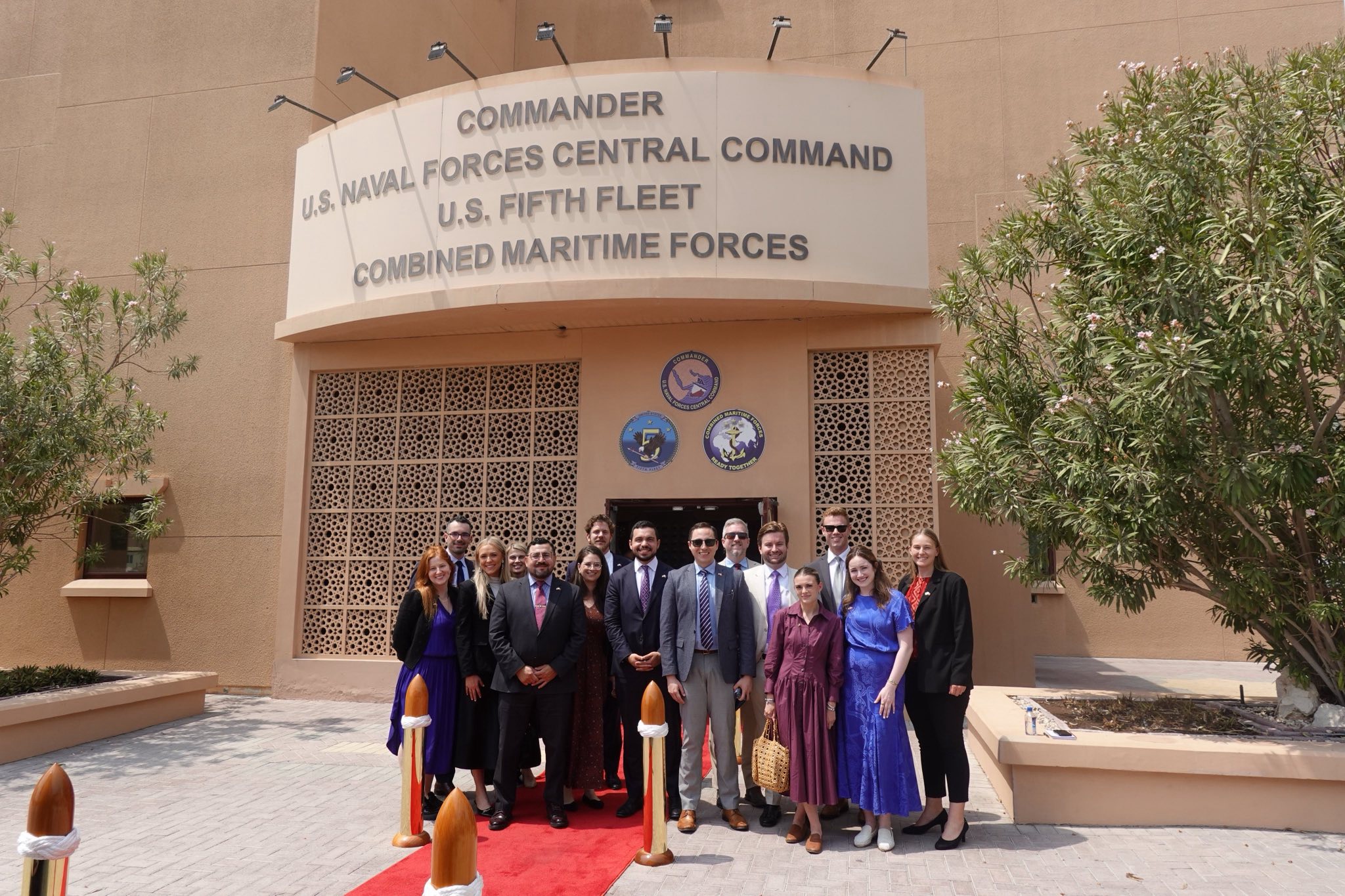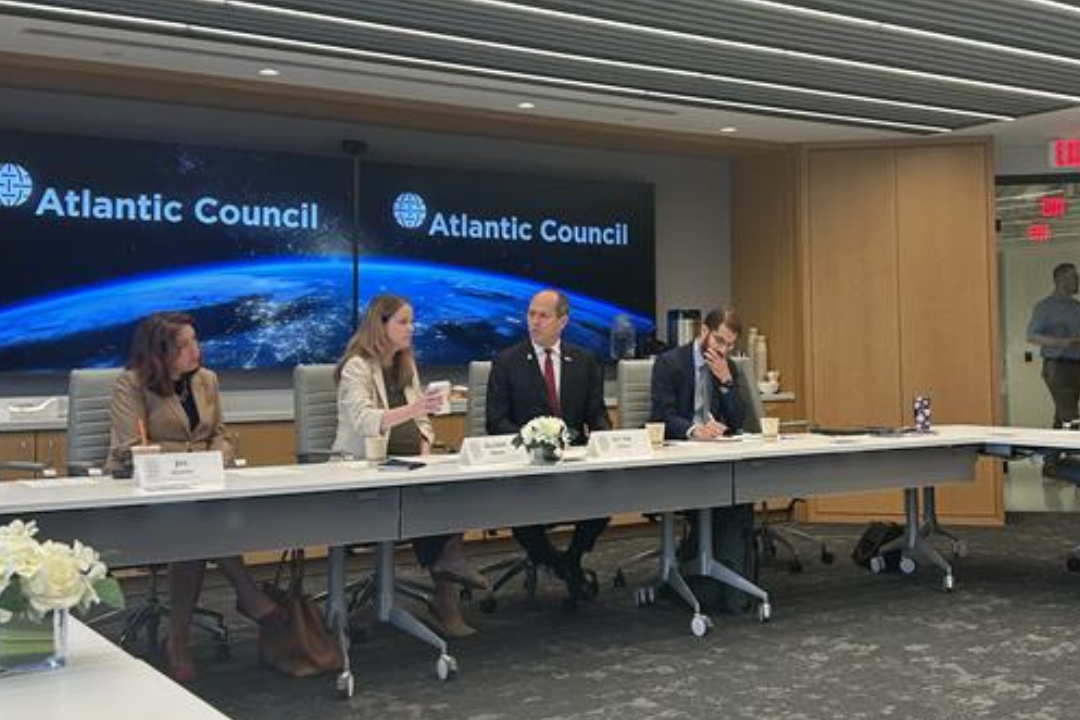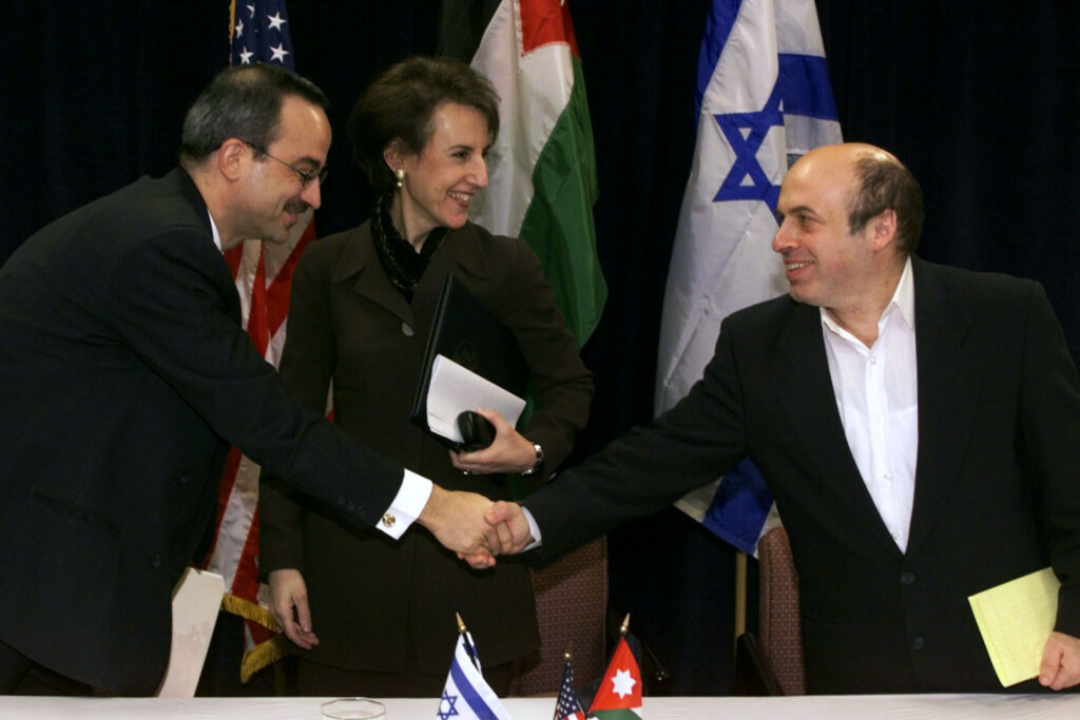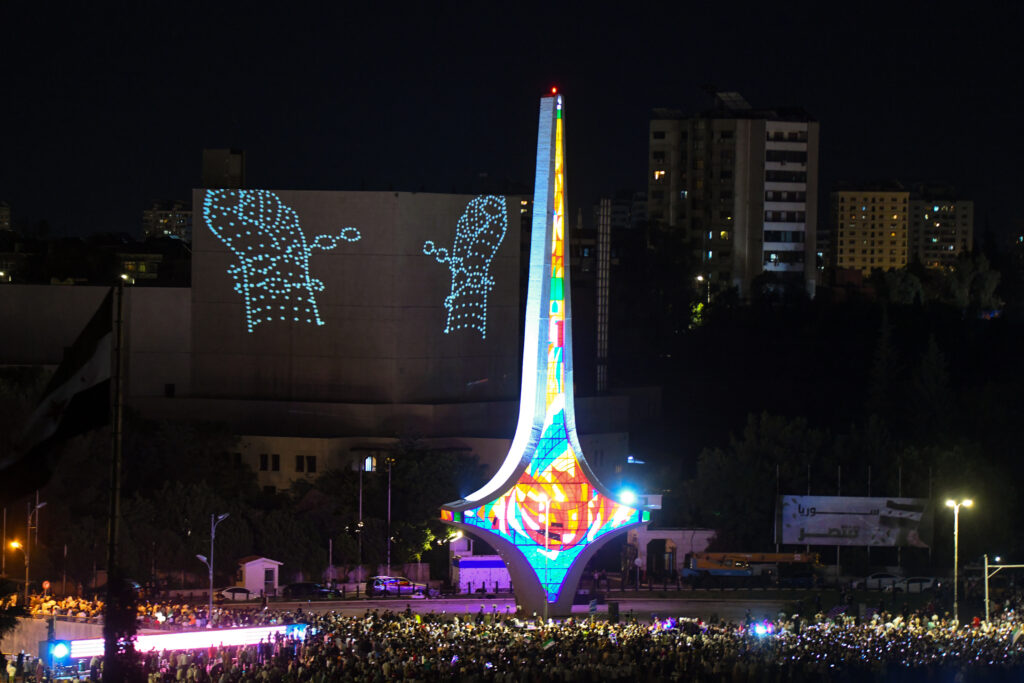Perspectives from
- United States: After the war, it’s time to revive and expand the Negev Forum
- Israel: That the accords have endured is telling
- UAE: The accords fulfill Sadat’s people-to-people dream
- Bahrain: Balancing domestic sentiment and regional integration
- Morocco: ‘Pan-Abrahamism’ is crucial for the monarchy’s throne succession
Five years ago, the announcements that the United Arab Emirates and Bahrain would normalize relations with Israel caught the world by surprise. Subsequent announcements on Kosovo, Sudan, and Morocco demonstrated that the new spirit of cooperation in the Middle East—embodied in the Abraham Accords signing ceremony at the White House on September 15, 2020—was not an isolated trend.
The world and the Middle East specifically have changed significantly in those five years, with intensifying major power competition, a reimagining of the US role in the world, rapid technological change, major evolutions in the conflict between Iran and both Israel and Gulf countries, significant political change across the Middle East, and the October 7 tragedy and the resulting war in Gaza—to name a few.
Many of these developments have reinforced the trends driving the Abraham Accords: Evolving geopolitical dynamics and economic and technological change have underscored the value of stronger cooperation between Israel and its neighbors and the importance of mending the rifts that have impeded the Middle East’s economic potential for too long. For the United States, the diplomatic achievement of the Abraham Accords highlights the value of America’s unique form of strategic partnership (as compared to competitors like China) and provides a platform for transforming its partnerships in the Middle East for a new era: away from counterterrorism and forever wars and toward cooperation around mutually beneficial, private-sector-led prosperity. The force of these trends explains why there was so much momentum toward deepening and expanding the accords in mid-2023, as Dan Shapiro describes in this collection of essays.
Of course, other recent developments—most notably October 7 and the war in Gaza but also fears of Iranian retaliation—have challenged the positive trends associated with the Abraham Accords and demonstrated that the forces propelling division and discord remain influential. There is a risk that these forces could derail or at least further delay positive momentum. But at the N7 Initiative, we remain hopeful that these forces are waning in the face of more powerful global and regional trends. A durable end to the war in Gaza is essential to realizing the potential for a new era of de-escalation and cooperation in the Middle East. And a negotiated solution to the Iranian nuclear threat will help resolve one of the most persistent challenges to that new era.
This compilation of essays and reflections from American, Bahraini, Emirati, Israeli, and Moroccan authors reminds us that the transformational change and “warm peace” envisioned by the Abraham Accords is a long-term, generational project. Sarah Zaaimi describes how the Moroccan king was inspired to embrace the accords precisely because he was thinking about future generations and creating a more stable and prosperous country when leadership eventually passes to his son. And as Loay Alshareef points out, positive economic and cultural change between Israel and its neighbors is continuing, and this change has deep roots that predate the accords themselves.
Those who believe in the vision for an integrated Middle East must retain a commitment to this project and continue to invest in initiatives today that will make that more promising vision for the future possible. In his reflection, Dan Shapiro, who served as US ambassador to Israel from 2011 to 2017 and deputy assistant secretary of defense for the Middle East from 2024 to 2025, describes what some of these initiatives could entail and underscores the importance of investing in a multilateral architecture to institutionalize a range of economic, security, and cultural projects. While less flashy than major new political announcements, this architecture is what will help cement regional integration for decades to come.
Finally, remaining focused on the long-term promise of the Abraham Accords can help policymakers navigate the immediate challenges facing the region more effectively. As Israel’s first ambassador to the United Arab Emirates Amir Hayek points out, the strategic partnerships Israel has forged through the Abraham Accords can provide Israel with a more comprehensive security than military power alone can deliver. Similarly, Ahmed Khuzaie argues that Bahrain’s engagement with Israel has elevated the small country’s position as a leader of pragmatic diplomacy, allowing Bahrain to help shape regional discourse on issues like the Israeli-Palestinian conflict.
The N7 Initiative remains committed to working with policymakers, the private sector, and thought leaders to build on these lessons. In doing so, we seek to ensure the Middle East five years from now is a more integrated, tolerant, and prosperous place.
Allison Minor is the director of the N7 Initiative, a partnership between the Atlantic Council and Jeffrey M. Talpins Foundation dedicated to strengthening cooperation between the United States, Israel, and Arab and Muslim countries. She previously served as the deputy US special envoy for Yemen and the director for the Arabian Peninsula at the US National Security Council.
United States: After the war, it’s time to revive and expand the Negev Forum
Five years after the Abraham Accords, the promise of these agreements to help shape a far more peaceful, prosperous, and integrated Middle East remains. But advancing it is also frustrated by the ongoing war in Gaza that Israel launched in response to Hamas’s terrorist attacks on October 7, 2023. But the war will end, the sooner the better. When it does, countries committed to this vision of integration must move quickly to restore momentum that has been lost.
One opportunity that should be seized as soon as possible after the war is to resume the work of the Negev Forum. The Negev Forum was launched at the Negev Summit in Israel in March 2022, when the foreign ministers of Israel, the United States, the United Arab Emirates (UAE), Bahrain, Egypt, and Morocco met together in the first gathering of its kind. They launched the Forum, with a steering committee and six working groups, covering security, health, water and agriculture, energy, education and coexistence, and tourism. The working groups were tasked with developing multilateral projects aimed at bringing the benefits of regional integration to the citizens of these nations. (The N7 Initiative conducted its own conferences on education and coexistence, water and agriculture, and trade with regional experts in 2022 and 2023 to support the governments’ work.)
Progress was mixed, as some working groups progressed faster than others, and countries had different bandwidths and levels of commitment to pursuing projects. But by the summer of 2023, when I assumed the duties of the US representative to the Negev Forum steering committee as part of my role as the State Department Senior Adviser on Middle East Regional Integration, we were gaining momentum. At the UN General Assembly in September, plans were finalized to host a second Negev Forum ministerial in Marrakesh, at which working group projects would be endorsed by the foreign ministers and advanced toward implementation. Host country Morocco insisted on going forward with the meeting despite a recent, devastating earthquake. US Secretary of State Antony Blinken was set to attend, following a visit to Israel and Saudi Arabia intended to advance work on a normalization agreement. The date of the ministerial was set for October 19, 2023.
Of course, it never happened. Hamas’s brutal attack and the war that ensued consumed the region’s attention. But when the war ends, reconvening this gathering should be an early goal, with working group projects dusted off and updated, ready for ministerial approval.
In fact, the Marrakesh ministerial was set to be an expanded version of the original Negev Summit. Plans were at an advanced stage to include Jordan as a new member, and to invite senior Palestinian Authority representatives to participate in some of the sessions. In addition, a number of other countries, including African members of the Arab League and other countries outside the region, had expressed interest in attending as observers.
That expansion, too, should be on the table for after the war. Jordan, as a full member, and the Palestinian Authority are obvious participants. Oman, Mauritania, the Comoros, Somalia, Djibouti, and Indonesia are all plausible participants as observers. A number of European partners could also attend at lower levels to indicate where their governments could provide expertise and funding to support the main countries’ efforts.
Over time, the institutionalization of a regional grouping like the Negev Forum would add considerable ballast to efforts to build a more integrated region. As its projects deliver benefits to the citizens of Negev Forum countries, more countries will want to join the club. In time of war, it may seem far-fetched, but the goal should be for an ASEAN-style regional organization to take hold in the Middle East and North Africa region, the kind of organization that creates a thickened web of ties that help make war less likely in the future.
It will be tempting to let post-war priorities that are more urgent—like the reconstruction of Gaza—or flashier—like Israeli-Saudi normalization or Israeli-Syrian understandings—crowd out the work of building a broader regional architecture. The United States should not let that happen. But given the intensity of the work involved, more resources are needed. That is why President Donald Trump should nominate, and the Senate should confirm, the special envoy for the Abraham Accords that Congress created in the National Defense Authorization Act for Fiscal Year 2024. The appointment of a high-profile envoy in this role will communicate the United States’ seriousness about expanding regional integration in every direction, and buttress the work of other senior envoys who may focus on the higher profile efforts in Riyadh and Damascus.
Once the Negev Forum has been revived with an expanded ministerial meeting, Trump could make a major contribution to his peacemaking aspirations by convening a Negev Forum head of state summit. This summit could be held in concert with, or as a means of encouraging, progress toward an Israeli-Saudi normalization deal. As much as anything, the summit would demonstrate that the dramatic regional transformation toward integration launched by the Abraham Accords is alive and well and moving forward as the Middle East emerges from the tragedy of October 7 and the Gaza war.
Daniel B. Shapiro is a distinguished fellow with the N7 Initiative and the Atlantic Council’s Scowcroft Middle East Security Initiative. He served as US ambassador to Israel from 2011 to 2017, and most recently as deputy assistant secretary of defense for Middle East policy. He also previously served as the director of the N7 Initiative.
Israel: That the accords have endured is telling
As we mark the fifth anniversary of the Abraham Accords, the region is living through another difficult chapter of violence and uncertainty. The horrific October 7 attacks and the ongoing war have challenged even the most resilient partnerships. War, by its nature, undermines trust and stability. And yet, despite these headwinds, the Accords have endured. From my perspective, that endurance is not accidental. It is the product of leadership, commitment, and the recognition that the path blazed by UAE President Sheikh Mohammed bin Zayed five years ago is that of a marathon, not a sprint.
When I speak about the Abraham Accords, particularly the relationship between Israel and the United Arab Emirates, I often think about it as a marathon. In a marathon, there are stretches where the road is smooth and momentum is strong, but there are also moments of fatigue. But the essential point is that you keep running. That is what we have seen in the past five years: Despite difficulties there has been an unshakable commitment to continue moving forward.
In recent weeks, the United Arab Emirates has made it clear that Israeli annexation of West Bank territory would jeopardize its relationship with Israel after an Emirati official made a public statement saying that such a move is a “red line” and would “foreclose on the idea of regional integration.” This sentiment is not new, as the suspension of previous West Bank annexation plans was a condition for the UAE to sign the Abraham Accords. The Emiratis, known for their long-term planning, want to take action—and believe that action must be taken—to build a new, secure, and strong Middle East economically and strategically. For the Emiratis, annexation would lead to a loss of hope in their vision for the future of the Middle East, and this loss would jeopardize long-term plans. From my acquaintance with the Emirati leadership, I know that their words should be taken very seriously.
We must do everything to continue, develop, and preserve the Abraham Accords for the benefit of future generations.
The UAE’s stance following October 7 has illustrated its commitment to moving forward. Despite facing significant regional and domestic pressure, Abu Dhabi remained firmly committed to the Abraham Accords and condemned Hamas’s brutal attacks. The UAE went beyond rhetoric and maintained flights to Israel from the very first day of the war, when nearly all others suspended them. At the same time, the Emiratis leveraged their relationship with Israel to deliver humanitarian support to the people of Gaza—they provided food, medicine, medical treatment for children, and critical infrastructure like hospitals and desalination plants.
For Israel, one of the clearest lessons of the past five years is that the country waited too long to pursue these kinds of partnerships. Israel lost decades of potential cooperation in the region by relying only on military power and conflict management, rather than investing in regional alliances. The Abraham Accords have shown that real security does not come from military power alone—it comes from trusted partners, shared interests, and commitments to growth and stability. Israel has found such partners in the UAE, Morocco, and Bahrain, and the country’s long-standing peace with Egypt and Jordan remains foundational. I believe more countries will join this circle of normalization in time, motivated by the desire to counter radicalization and to pursue regional prosperity. This is not wishful thinking; it is the realistic trajectory of a region that cannot afford to remain hostage to old conflicts.
Future partners in the region can look at Israel’s relations with the UAE and ask themselves: “Why not us?”
The past five years have also demonstrated the tangible benefits of peace. Trade between Israel and the UAE reached over $3.2 billion in goods last year, not including government-to-government transactions or software and services. Investments have surpassed $5 billion, and more than two million Israelis have traveled to the UAE since normalization. These are not abstract statistics; they represent millions of human interactions and billions of dollars driving growth on both sides. Looking forward, the next phase must include deeper cooperation in science, academia, culture, and the arts—because while leaders may sign agreements, it is ultimately people-to-people connections that sustain them.
The priority for Israel and its Abraham Accords partners should not be narrowly defined. Security cooperation cannot stand without economic growth. Economic growth cannot last without cultural and human connections. Trust cannot deepen without all three reinforcing each other, thus they must be pursued simultaneously. Areas of potential cooperation include regional food security, energy innovation, AI, tourism, and more.
While the potential of bilateral relations is high, the potential of regional and multilateral cooperation is much higher.
As we reflect on these first five years, we must avoid the temptation to take a snapshot in a moment of crisis and declare the Accords a failure. Marathons are not judged at the halfway mark. They are judged by whether the runners reach the finish line.
Amir Hayek is a nonresident senior fellow in the N7 Initiative, a partnership between the Atlantic Council and Jeffrey M. Talpins Foundation. Hayek served as the first Israeli ambassador to the United Arab Emirates from 2021 to 2024, working to strengthen diplomatic and economic ties between the two countries after they formalized relations under the Abraham Accords.
UAE: The accords fulfill Sadat’s people-to-people dream
When I think about the Abraham Accords, I cannot help but look back to President Anwar Sadat of Egypt, my role model for peace. In 1979, Sadat’s peace with Israel brought Egypt the full return of Sinai and opened diplomatic relations. But his dream went beyond maps and treaties. Sadat envisioned a true people-to-people peace between Egyptians and Israelis that would transform generations and replace suspicion with trust.
Tragically, Sadat paid for this vision with his life in 1981. The bullets that killed him also killed the momentum for deep human connection. His successor, Hosni Mubarak, maintained security cooperation without cultural, social, or economic warmth as he was too afraid of the political risk. While Sadat paid the cost for peace, history remembers him as a hero who dared to dream beyond the limits of his time.
The Abraham Accords, signed in September 2020, are in many ways the realization of Sadat’s unfinished mission. Unlike the Egypt-Israel peace, these agreements between Israel, the UAE, and later Bahrain, Morocco, and Sudan have not stopped at the level of government-to-government arrangements. They have opened the gates for business partnerships, tourism, cultural exchange, and everyday friendships between peoples who for decades never met face to face.
Trade between Israel and the UAE has soared into the billions of dollars. Daily flights between Abu Dhabi and Tel Aviv are packed with the likes of diplomats, entrepreneurs, tourists, and families. Israelis shop in Dubai’s malls and Emiratis tour Jerusalem’s holy sites, demonstrating that this is a warm peace where people learn each other’s languages, work on joint ventures, and share meals together.
Up until the October 7 attacks the peace was unstoppable. Reports and seized Hamas documents confirm that Hamas carried out that massacre as a way to derail the potential normalization between Israel and Saudi Arabia. Only two weeks earlier, the crown prince of Saudi Arabia publicly said, “Every day, we get closer” in reference to normalization with Israel. That statement must have infuriated Hamas leader Yahya Sinwar, who feared peace more than war.
The UAE suddenly found itself in an extremely challenging position. On one hand, the leadership has always been clear in supporting the Palestinian people. On the other, it had to navigate a public mood already warming to the Abraham Accords. The reality is that enthusiasm for the Accords varies across the Emirates—Abu Dhabi embraces them strongly, while in Sharjah the sentiment is much cooler.
In the midst of the crisis, the UAE was one of only two governments in the entire Middle East to condemn Hamas’s barbaric attacks—the other being Bahrain, whose Crown Prince Salman bin Hamad bin Isa Al Khalifa also spoke out. Both took a principled stance, knowing that condemning terrorism is essential for any genuine peace to survive.
The way forward will not be easy. But I believe the war must end in the right way: Hamas’s total surrender, the complete release of all hostages, and the removal of a radical ideology that has held Palestinians hostage for decades. Only then can we begin to repair what was broken on October 7.
When that moment comes, peace activists must double down on building more people-to-people projects that connect Muslims and Jews, Arabs and Israelis, in ways that create real human investment in peace. Initiatives like the I2U2 Group, a partnership between India, Israel, the UAE, and the United States, show the potential for cross-regional collaboration in areas like agriculture, energy, water technology, and infrastructure. This is a model worth expanding, but it is not enough.
We must create platforms that also include Palestinians who reject Hamas’s pathological ideology—voices that want to see prosperity, education, and mutual respect flourish. Without them, peace will remain incomplete.
The future I believe in is one where Ishmael and Isaac both prosper—where their children travel, trade, and thrive together. The biggest loser after this war must be the extremist worldview that seeks endless cycles of bloodshed.
Five years on, the Abraham Accords remain the best hope we have for Sadat’s dream—a peace that is lived, not just signed. And that dream is worth defending, nurturing, and expanding, no matter the cost.
Loay Alshareef is a United Arab Emirates-based Arab Muslim peace advocate whose mission is to bridge divides between Muslims and Jews and to champion peace in the Middle East.
Bahrain: Balancing domestic sentiment and regional integration
Bahrain’s formalization of relations with Israel—which the country has remained committed to despite intensifying domestic and regional pressures following October 7—has recalibrated its foreign policy approach. The kingdom now finds itself navigating a nuanced landscape, where strategic partnerships must be weighed against the evolving currents of negative public sentiment.
When Hamas launched an incursion into southern Israel in October 2023, resulting in the subsequent Israeli military campaign, scrutiny of Bahrain’s normalization with Israel intensified. Public sentiment in Bahrain remains overwhelmingly pro-Palestinian, rooted in long-standing civil society activism and religious solidarity. Unlike the UAE, Bahrain has a more vibrant public sphere, where demonstrations and symbolic acts—such as protests outside the Israeli embassy and parliamentary statements—have expressed opposition to continued normalization.
Anti-Israeli sentiment in Bahrain is largely shaped by the ideological influence of regional Islamist movements, particularly the Iranian ayatollahs and the Muslim Brotherhood. These groups have cultivated narratives that resonate with segments of the population, framing normalization efforts as a betrayal of regional and religious identity. In response, Bahrain has sought to marginalize this influence through deepening strategic collaborations with Western partners—most notably Israel—as part of a broader effort to insulate its foreign policy from ideological pressures.
In November 2023, Bahrain’s parliament issued a statement declaring the suspension of economic ties with Israel and the departure of the Israeli ambassador. However, this move was merely symbolic; foreign policy remains under the purview of the executive, and Bahrain has not formally abrogated the Abraham Accords. Instead, the government has adopted a nuanced approach: condemning violence on both sides, calling for a ceasefire, and emphasizing humanitarian assistance, while quietly maintaining strategic ties with Israel and the United States.
This balancing act reflects Bahrain’s broader geopolitical calculus. Hosting the US Navy’s Fifth Fleet and participating in operations like Prosperity Guardian against Houthi threats, Bahrain remains closely aligned with Western security frameworks. Yet, it has also engaged in regional diplomacy, including communicating with Iran via Omani intermediaries, to mitigate domestic and regional backlash.
Despite the political sensitivities, Bahrain’s relationship with Israel has yielded several tangible benefits across economic, strategic, and diplomatic domains. Since 2020, Bahrain and Israel have signed multiple bilateral agreements covering sectors such as technology, healthcare, tourism, and telecommunications. Direct flights and business exchanges have facilitated commercial ties, although the scale remains modest compared to the UAE-Israel corridor. Bahrain’s strategic positioning as a financial hub and its free trade agreement with the United States have made it an attractive partner for Israeli firms seeking Gulf access.
The normalization has as well reinforced Bahrain’s role as a key US ally in the Gulf. With the Abraham Accords serving as a platform for regional security cooperation, particularly in maritime and cyber spheres, Bahrain’s participation in multilateral naval coalitions and its leadership in the US-led Combined Maritime Forces Task Forces underscore its strategic utility.
Increased engagement with Israel has elevated the country’s diplomatic profile as well, positioning it as an Arab state willing to engage in pragmatic diplomacy. This has facilitated its inclusion in gatherings like the Negev Summit and enhanced its bilateral ties with the West. The normalization also provides Bahrain with leverage in shaping regional discourse on the Israeli-Palestinian conflict, advocating for a two-state solution while maintaining dialogue with all parties.
The Comprehensive Security Integration and Prosperity Agreement (C-SIPA), signed in September 2023 between Bahrain and the United States, offers a blueprint for deepening regional integration. Structured around three pillars—defense and security, economics and trade, and science and technology—C-SIPA redefines traditional security cooperation by incorporating economic and technological dimensions.
Bahrain’s navigation of the post-Abraham Accords landscape illustrates the complexities of small-state diplomacy in a polarized region. While domestic sentiment poses constraints, Bahrain’s leadership has pursued a pragmatic strategy that preserves strategic partnerships and economic opportunities. By building on frameworks like C-SIPA and expanding regional cooperation, Bahrain can reinforce its role as a bridge between Gulf pragmatism and Mediterranean integration—without abandoning its commitment to Palestinian rights or regional stability.
Ahmed Khuzaie is an international political consultant, writer, essayist, and media commentator from Bahrain. He is the managing partner of the Washington-based political consultancy firm Khuzaie Associates LLC.
Morocco: ‘Pan-Abrahamism’ is crucial for the monarchy’s throne succession
To ensure the continuity of Morocco’s Alaouite dynasty, the ailing King Mohammed VI is gradually preparing his heir, Crown Prince Moulay Hassan, for a seamless succession. This effort translates into ambitious infrastructure and development initiatives, alongside strategic alliances with global powers to secure a lasting resolution to the Western Sahara dispute and cement the kingdom’s fate. Morocco’s 2020 re-normalization with Israel, brokered by the first Trump administration, should be viewed less as a diplomatic shift and more as a calculated move to position Rabat as a dependable pro-Western, pan-Abrahamic partner in North Africa—consolidating the future of the throne.
In his July 30 speech commemorating the twenty-sixth anniversary of his accession to the throne, it became undeniable that the Moroccan monarch is growing more feeble than ever. Mohammed VI, at sixty-two, has accumulated long periods of public absences and surgeries over the past decade, which have led to international speculation about his level of involvement in state affairs, despite local media cover-ups. In line with the Alaouite dynasty’s succession traditions since 1631, the current king has been gradually prepping and empowering the next monarch in line. Moulay Hassan, who recently turned twenty-one, is gradually being entrusted with more royal duties, meeting global leaders like Chinese President Xi Jinping, inaugurating major initiatives, and even being promoted to the rank of colonel-major in the Royal Armed Forces in July 2025—all signaling that the crown prince’s star is rising in key governance matters.
To reign over an ethnically and culturally diverse country like Morocco in a challenging regional and international context, the young prince needs to be surrounded by trustworthy and influential allies, hence the importance of joining the Abraham Accords’ newly forming bloc together with traditional allies from the “Arab monarchy club” like the United Arab Emirates, Bahrain, and Jordan—which are also looking for self-preservation by ensuring seamless succession for their kingdoms—along with influential players like the United States, Israel, and the European transatlantic community.
The Moroccan monarchy has survived for twelve centuries, and the Makhzen (the establishment) is wise enough to read the tea leaves and understand the profound geostrategic shifts that the region is undergoing after the 2024 collapse of the last of the pan-Arabist regimes in Syria. Alliances are being redefined, and narratives are being reimagined to provide a new ideological framework for the countries of the region, where a shared and integrated future is possible together with Israel. Similarly, the “Axis of Resistance” countries are gearing up proxies and client-states to shape the region in their own image, offering an anti-hegemonic alternative based on Iranian revolutionary Islamism and enabled by China and Russia, who increasingly challenge US unipolarity. While neighboring Algeria appears to align with old Cold War allegiances, showing an increased rapprochement with the axis, Morocco remains consistent with its post-World War II positioning and has chosen to strike a new pact with the Pan-Abrahamist clan.
Beyond this more existential zeitgeist, the Abraham Accords and the reestablishment of ties with Israel in December 2020 have yielded numerous benefits for both Rabat and Tel Aviv in the past five years. The two reconciled countries have never been closer at the military, intelligence, and economic levels despite the growing popular anti-normalization sentiment in Rabat amid the ongoing Gaza war.
October 7 sounded the alarm among Moroccan governing elites of what an Iranian proxy is capable of, especially with the growing rapprochement between Polisario militants in Western Sahara and Iran and its proxies. The kingdom’s appetite for Israeli-made weapons and security systems has grown in recent years as it found in Tel Aviv an evident partner with similar priorities and adversaries. So far, the Royal Moroccan Armed Forces have acquired three Israeli-made Heron drones, developed by Israel Aerospace Industries (IAI), for approximately $48 million. Additionally, they have purchased SkyLock Dome anti-drone systems for $500 million and Barak MX missile systems for another $500 million. Morocco is also poised to acquire a spy satellite from IAI in a $1 billion deal.
Since the tripartite agreement between the United States, Israel, and Morocco in 2020, in which the United States recognized Rabat’s sovereignty over the disputed Western Sahara territories in exchange for Israel and Morocco resuming diplomatic relations, the kingdom has become increasingly emboldened and achieved multiple consecutive foreign policy successes. Morocco, mainly thanks to the Accords, has moved from seeking international recognition for its national cause to de facto exercising sovereignty over Western Sahara. With the historical neutrality regarding Western Sahara of the former two colonizers of North Africa, France and Spain, reversed and support from key global actors like the United States, Israel, and the United Kingdom, in addition to multiple Arab and African countries, the incoming monarch can confidently ascend to power. Moulay Hassan will not have to worry that half of the territories of his kingdom are internationally contested, empowered with the vote of three UN Security Council members and the favorable momentum facilitated by his father’s long-term vision.
The young prince will still have to defend Morocco’s strategic choices to side with pan-Abrahamism against revolutionary Islamism, particularly with his emotionally charged and largely pro-Palestinian population, which may favor regional pan-Arab and pan-Islamic sentiments over regional security and dynastic continuity. As the war in Gaza entered its second year, support for normalization with Israel dropped from 31 percent in 2021 to only 13 percent in 2024, according to the Princeton University Arab Barometer. While kingdoms with a millennial memory and an empire muscle see beyond isolated wars and conflicts, symbolic historical positions remain crucial for forging national unity and shaping public imaginaries—and Moulay Hassan will have to convince his citizens that he is a visionary leader who stands on the right side of history.
Sarah Zaaimi is a resident senior fellow for North Africa at the Atlantic Council’s Middle East programs, focusing on normalization and minorities in the region. She is also the center’s deputy director for media and communications.

